Tag Archives for " South Hudson "

The real estate world changes fast and interest rates shift often. Many buyers struggle to keep up with rising payments. When a seller offers an assumable FHA, VA, or USDA mortgage, buyers get something rare. They get a chance to step into a loan with a lower rate than they can find in the current market.
This creates instant emotional impact. Buyers feel relief when they hear the words lower payment. They feel hopeful when they realize they can afford more home than expected. Financial stress fades and excitement grows. Sellers with assumable mortgages hold an incredible advantage because they are offering something powerful and uncommon.
Assumable mortgages allow buyers to take over the seller’s current loan. The interest rate remains the same. The remaining loan term stays the same. The monthly payment remains the same. The buyer simply continues where the seller left off.
This works only with certain types of loans. FHA, VA, and USDA loans are commonly assumable when rules are followed. Many homeowners in Southern NH have one of these loans. That means more homes in Hudson, Londonderry, and Nashua offer hidden benefits that buyers do not always realize.
The key is education. Buyers need to understand that this is not a new loan. It is a financial gift already wrapped and ready. For sellers, this becomes a golden selling point.
There are many reasons buyers feel drawn to assumable mortgages. Many buyers enter the market feeling overwhelmed. They see rising prices and rising rates. They see their buying power shrinking. Then they discover a home with an assumable mortgage and everything shifts.
Buyers enjoy the chance to save money. They appreciate the chance to avoid high interest rates. They feel secure knowing the loan has a proven track record. The payment is predictable and already established. This creates emotional comfort. Buyers want predictability and assumable mortgages offer exactly that.
Buyers also love the idea of stepping into a ready made financial structure. They feel like they are being handed a key to a rare savings opportunity. Many buyers even become more flexible with other terms because of this benefit. That can speed up negotiations and create smoother deals for everyone.
Sellers with assumable mortgages hold a quiet superpower. Not every seller has it and not every buyer knows to look for it. When the seller proudly says please take my mortgage they are offering something extremely valuable. It gives their home more attention and more offers. It makes their home feel special in a crowded market.
A home with an assumable loan becomes easier to market. It can attract buyers who were previously priced out. It can attract buyers who planned to wait but now feel ready to move. It can attract cash buyers who want lower payments and stronger long term plans.
Sellers love that their home becomes more competitive. They love that buyers feel happier and more confident. They also appreciate that their home might sell faster because assumable loans feel like a bonus feature that other homes do not offer.

Marketing is about emotion and value. When you include assumable mortgage information in your listing package, you are giving buyers a reason to stop and look. You can highlight lower payments and long term savings. You can share examples of possible monthly differences if a buyer keeps the seller’s rate instead of starting fresh.
Homes with assumable loans can be advertised proudly. A smart REALTOR knows how to present it in a simple and friendly way. You can share this information in open houses, online listings, social media posts, and printed marketing materials. When you do this clearly, buyers respond quickly.
Your listing becomes powerful. Your listing becomes shareable. Buyers tell their friends that this home is different. That builds energy and increases demand.
Buyers need to qualify with the lender who holds the current mortgage. This helps protect both buyer and seller. The lender reviews the buyer’s income, credit, and financial history. This part is similar to getting a traditional loan, but everything moves into an existing loan instead of a brand new one.
If the buyer approves, the remaining steps are simple. The buyer pays the seller for any equity if needed. Closing takes place and the buyer steps into the existing mortgage. They continue making the payments as usual.
The process feels smooth because the loan already exists. The buyer gains a predictable payment and a future filled with savings. The seller moves forward knowing they offered something truly helpful.
One question that often comes up involves equity. When a seller has built equity over time, the buyer may need to cover the difference between the loan balance and the home value. Buyers can use cash, a second loan, or creative financing options to cover this.
This still benefits buyers because the first mortgage has such a good interest rate. Even if a buyer takes a small second loan, the blended payment often remains lower than a brand new single mortgage at today’s higher rates.
This creates strong motivation for buyers to move quickly. They see real savings and they feel more in control of their purchase.
Southern New Hampshire remains one of the most popular areas for homebuyers. The communities offer strong schools, great commuter access, and beautiful neighborhoods. Homes in areas like Hudson, Nashua, and Londonderry stay in demand because they provide comfort and convenience.
Many homes in Southern NH were purchased in years when rates were very low. That means many sellers here already have FHA, VA, or USDA loans that come with attractive interest rates. Buyers moving into the region appreciate any opportunity to lock in lower costs. This gives sellers a real edge.
Homes with assumable mortgages in South Hudson and surrounding communities can become some of the most desirable properties on the market.
Real estate is emotional. Buyers fall in love with homes that feel comforting and secure. When a seller says please take my mortgage they are not only offering a loan. They are offering peace of mind. They are offering a path to a future that feels stable and predictable.
Buyers appreciate anything that reduces stress. They appreciate saving money. They appreciate fairness and transparency. A loan assumption checks all of these emotional boxes. A buyer feels good about moving forward because they know they are stepping into something proven and trustworthy.
Sellers feel emotional satisfaction because they know they helped the buyer. They created a moment of relief and hope. This often creates smoother cooperation during the rest of the transaction.

Imagine a seller with a three percent FHA loan. The current rate for a new loan might be seven percent. If a buyer assumes the seller’s loan, the payment could be much lower.
This difference adds up quickly. A buyer might save several hundred dollars each month. Over the life of the loan, that could mean tens of thousands of dollars saved. These savings can change a family’s financial future.
This is why assumable mortgages hold so much power in your marketing plan. They are real benefits that buyers can feel and understand.
Sellers should work closely with a REALTOR who understands how to promote this feature. Strong marketing helps buyers understand the value right away. Sellers should have their loan details ready and available. They should also confirm with their lender that the loan can be assumed.
Once everything is confirmed, this benefit should be shared in every part of the marketing package. It should be highlighted in online listings, open house discussions, and printed flyers. Buyers should see it instantly and feel encouraged to learn more.
Buyers should ask questions early in the process. They should explore the current loan balance, interest rate, and remaining years. They should also speak with a qualified lender to understand the steps involved.
Buyers should work with a REALTOR who knows how to negotiate assumable mortgage terms. They should also prepare to move quickly because homes with assumable mortgages often receive extra attention.
Assumable mortgages create real excitement in the current housing market. When a seller proudly says please take my mortgage it transforms the entire conversation. The listing feels more valuable and more attractive. Buyers feel hopeful and ready to take action. Southern NH buyers especially appreciate any advantage that makes ownership easier.
When used correctly, this feature becomes a true superpower for your listing. It adds confidence, clarity, and emotional appeal. Sellers feel empowered and buyers feel supported. It is a win for everyone. As you explore South Hudson houses for sale or other Southern NH houses for sale, keep an eye out for this benefit. It may shape your future in ways you never expected. The idea of assumable loans brings new energy to modern real estate and helps many people move forward with joy and confidence.
If you need more tips on how a buyer can take my mortgage, or are ready to sell your house give us a call at (603) 883-8840. You can also sign up for your dream home search or reach out to Our Agents for more information. We’d love to help you with your real estate needs.
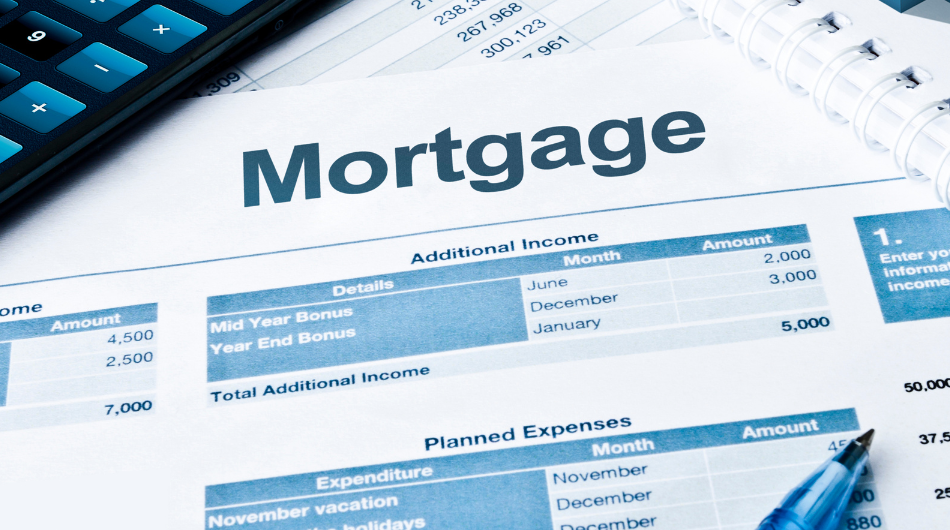
Life looks different as time goes by and the home that once felt perfect might now feel too large or too expensive. Many people want fewer rooms to clean, fewer bills to handle, and more time to do what matters most. A smaller home can be easier to manage and can also fit a simpler lifestyle. When you decide to downsize, you gain control of your living situation and also your financial future. New Hampshire buyers and sellers often look for homes that offer comfort, convenience, and predictable costs. This is where downsizing becomes a powerful option.
Housing trends across Southern New Hampshire show strong demand for well kept smaller homes. Buyers want move in ready homes with smart layouts and easy access to local amenities. Sellers who downsize can often sell their current home for a strong price and then purchase a smaller home with more financial flexibility. That flexibility becomes even stronger when you explore the option of downsizing without the monthly payment.
Many people dream of living in a home that brings peace instead of financial stress. The concept of downsizing without the monthly payment means choosing a home that can be paid for in full or financed in a way that eliminates a traditional mortgage payment. This creates a life with steady expenses and fewer worries.
Some homeowners achieve this by using equity from their current home to purchase their next home outright. Others use specific financing tools that allow payment flexibility. The goal is always the same. You want a home that supports your lifestyle instead of draining it. New Hampshire homeowners often have strong equity because of rising home values. That equity makes this plan very realistic.
A reverse mortgage can be a helpful tool for some homeowners. This type of loan is often used by people who are at least sixty two years old and want to stay in control of their finances. A reverse mortgage allows you to use equity in your home to pay for your new home without creating a monthly payment obligation. Instead, the loan balance is paid when the home is sold or the homeowner leaves the home.
This approach can be especially helpful when someone wants a comfortable home in a town like Hudson, Londonderry, Nashua, or another popular Southern NH area. It helps people stay independent while also enjoying financial ease. When used carefully and with good advice, a reverse mortgage can support a strong plan for downsizing without the monthly payment.
Reverse mortgages offer several benefits that help homeowners who want financial confidence. First, the homeowner keeps the title to the home. Second, there is no required monthly mortgage payment which keeps stress levels low. Third, the homeowner can often increase cash flow and savings because less money goes toward housing costs.
Many people in New Hampshire prefer reverse mortgages because they want stability and control. Life feels easier when housing expenses stay predictable. A reverse mortgage allows that and supports personal freedom. A smaller home that fits your lifestyle combined with a loan that eliminates monthly payments can create a peaceful future.

Planning ahead helps you feel calm and organized. Downsizing takes thought but it can also be very exciting. You are building a new chapter that fits your needs and goals.
Start by reviewing your current finances and future plans. Think about how much space you really want. Decide which features matter most to you. Many people want one level living, modern updates, and low maintenance yards. Southern NH houses for sale offer many of these features.
Next, speak with a knowledgeable REALTOR who understands the local market. They can guide you toward smart decisions and realistic expectations. A REALTOR with experience in South Hudson houses for sale or Nashua homes can show you communities that match your lifestyle.
Finally, meet with a trusted reverse mortgage specialist if you want to explore that option. It is important to understand how the program works and to feel confident in your decision.
Nashua and Hudson continue to be very popular towns for homeowners who want comfort and convenience. Nashua offers great restaurants, medical services, parks, and shopping. Hudson provides a quieter suburban feel with easy access to major highways, nature trails, and community spaces.
Both towns offer strong value and consistent demand. Homes here tend to sell quickly when priced well. That makes them great choices for downsizing without the monthly payment because resale value remains strong.
A smaller home can bring more joy than you might expect. Less cleaning and fewer repairs means more time to enjoy your day. Lower costs can also remove stress and allow you to travel, spend time with family, or pursue hobbies.
Many homeowners discover that a right sized home feels more comfortable and easier to manage. Life often feels simpler and more enjoyable. When your home works for you, you feel more at peace.
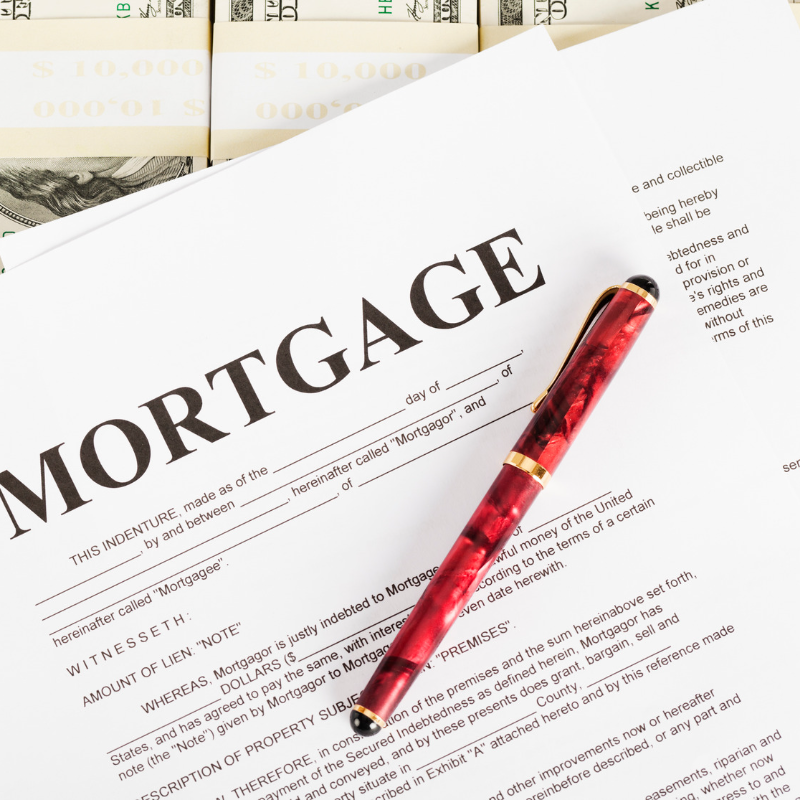
Downsizing is not only a financial decision. It is also emotional. Leaving a longtime home can feel bittersweet. It takes courage to start fresh and choose a home that fits your new lifestyle.
Give yourself time to process the change. Focus on the positive benefits like more freedom, less stress, and more comfort. A new home in Southern NH can feel exciting and inspiring. You are not losing space. You are gaining a new chapter.
When you shop for your new home, think about your long term needs. Look for wide hallways, first floor bedrooms, safe entryways, and modern systems. Consider the location carefully. You may want to be near family, shopping, medical care, or recreation.
Southern NH houses for sale offer many options that fit the needs of downsizing homeowners. There are beautifully updated condos, charming ranch homes, and right sized colonials. Your REALTOR can help you compare neighborhoods and features so you can choose wisely.
A local REALTOR provides guidance that makes your journey easier. They know the market and understand local trends. They can help you price your current home correctly and find the best options for your next home. They also help you avoid mistakes that could cost money or cause stress.
A REALTOR can also introduce you to reverse mortgage experts, inspectors, attorneys, and lenders. This helps create a smooth and confident plan for downsizing without the monthly payment.
Southern New Hampshire offers a perfect blend of convenience, comfort, and community. Many downsizing homeowners want easy access to Boston and Manchester. They want friendly neighborhoods and strong home values. Southern NH delivers all of this and more.
Whether you want a quiet home in South Hudson or a vibrant condo in Nashua, you can find a home that fits your lifestyle. Southern NH houses for sale appeal to many age groups and offer long term value.
Downsizing can help you enjoy more freedom and less stress. When combined with a smart reverse mortgage plan, it can support a strong future. The idea of downsizing without the monthly payment brings peace to many people who want stability and comfort.
As you explore your options, remember to take your time, ask questions, and work with trusted professionals. The right home is out there and it will support the life you want to enjoy. Southern NH offers many wonderful communities that can help you start your next chapter with confidence.
If you need more tips on downsizing without the monthly payment, or are ready to sell your house give us a call at (603) 883-8840. You can also sign up for your dream home search or reach out to Our Agents for more information. We’d love to help you with your real estate needs.

Many people dream about leaving their regular job and building a life filled with more freedom and financial stability. The truth is that many have already done it through real estate investing. This path can feel exciting and life changing once you understand how it works. The steps are simple but they must be followed with patience and focus. You can turn your interest in property into a full time business that supports your goals. This includes investing in local areas such as South Hudson houses for sale or other popular Southern NH houses for sale.
Real estate offers many ways to grow your income. Some investors choose rental properties. Some flip homes for profit. Others explore short term rentals or commercial buildings. When you learn the basics and build skills over time, you can create a business that grows with you. It does not matter if you are starting small. What matters is learning, planning, and taking steps every week.
Real estate can feel rewarding because it creates both short term income and long term value. You are building something real that stands on the land. People will always need places to live and work. This is why real estate stays strong in almost every economy. Property also grows in value over time which helps investors build wealth.
Another reason this field works is the flexibility. You can begin small with one rental. You can buy a fixer upper and make a profit. You can work part time while learning the ropes. As you feel more comfortable you can grow your business slowly or quickly. Many investors reach a point where they feel ready to go full time because the income becomes steady.
Real estate also creates emotional satisfaction. Investors enjoy helping families find homes. They enjoy improving neglected properties. They enjoy watching tenants thrive. It is a business that can feel personal which encourages loyalty and pride.
Every strong real estate career begins with knowledge. You need to understand what makes a property valuable. You need to learn how rental income works. You need to know local market trends. Luckily these things are easy to learn with practice.
Start by studying your local area. Look at prices in Nashua, Hudson, Londonderry, and other Southern NH towns. Pay attention to days on market and average rent. Notice which neighborhoods grow quickly. This simple research will help you make smarter choices later.
It also helps to understand common terms used in real estate investing. These include cash flow, equity, appreciation, cap rate, and return on investment. Learning these terms may feel strange at first but they become natural with use. You can read books, attend local seminars, or watch online videos. Make time each week to practice your skills.
Surround yourself with people who already invest. This can be through local real estate groups, networking events, or community meetings. Ask questions and learn from their experiences. Most investors enjoy helping beginners because they remember what it felt like to start.
There are many ways to invest because different personalities enjoy different strategies. You can decide which path fits your skills and comfort level.
Many investors choose long term rental homes because they create steady monthly income. Rental homes can be single family homes, condos, or even small multi family buildings. You earn money each month while your tenant pays down the loan. You also earn value as the property increases in price.

Some investors buy older homes that need repairs. They make improvements then sell for a profit. This path can earn larger paychecks but the risk can feel higher. It requires good contractors, strong budgets, and smart planning.
Short term rentals can work well in tourist areas or busy towns. These properties are rented for days or weeks. They can earn more than traditional rentals but require more hands on management.
Commercial real estate includes office buildings, retail centers, and warehouses. These properties often have higher income but require more knowledge. Many investors enter this field later in their career.
The best path is the one that feels comfortable to you. There is no wrong place to start. Many full time investors begin by purchasing one rental home in their town. For example, investing in South Hudson houses for sale can be a great first step because the area stays in high demand.
Real estate feels easier when you are not alone. A solid team can support your career and help you grow safely. This includes a REALTOR who knows the local market. It includes a trustworthy lender who offers smart financing options. It includes contractors, inspectors, attorneys, insurance agents, and property managers.
Your REALTOR becomes one of your most valuable partners. They help you find strong deals. They help you understand neighborhood trends. They help you negotiate fair prices. They also help you avoid mistakes. A REALTOR with Southern NH experience can guide you to homes that appreciate well.
A good lender helps you secure financing for each deal. They explain different loan types and show which options fit your income and goals. They help you plan your credit and your future purchases.
Contractors help you repair and upgrade properties. Inspectors help you avoid hidden problems. Attorneys help you understand legal paperwork. Insurance agents help you protect your investments.
When you have a strong team, you feel more confident and ready to take bigger steps.

Real estate investing requires money but you do not need to be wealthy to begin. Many investors start with low down payment loans. Some use FHA loans. Some use conventional loans with small down payments. Others use creative financing such as seller financing or private lenders.
You can also use equity from your current home to make your first purchase. Homeowners in New Hampshire often have strong equity because prices have grown. Using equity wisely can help you buy your first rental or flip property.
It is important to understand your monthly expenses. You should know your mortgage payment, taxes, insurance costs, and repair budgets. When these numbers are clear, you can plan your income correctly. You will understand how much rent you need to make the property profitable.
The better you understand your money, the smoother your transition into full time real estate investing will feel.
Full time real estate investors follow habits that keep their business strong. They check new listings each day. They study market changes. They visit open houses. They run numbers on possible deals. These habits keep their minds active and ready for action.
Investors also track their income and expenses. They monitor tenant issues and property conditions. They keep legal documents organized. They communicate clearly with their team. They plan ahead for maintenance and renovations.
Real estate investing becomes a full time career when you treat it like one. You do not need to work twenty four hours a day. You simply need a steady routine. Over time these habits create structure and help your business grow.
Investing can feel exciting but also a little stressful at times. You may worry about making mistakes. You may feel nervous during negotiations. You may second guess yourself before buying your first property.
These feelings are normal. Every full time investor felt them at the start. The key is to move slowly and stay educated. Celebrate your small wins. Learn from your challenges. Over time your confidence will grow and decisions will feel easier.
Real estate also brings joy. You help families find rentals. You improve neighborhoods by updating homes. You build a business that supports your dreams. This emotional reward keeps many investors motivated.
Every investment includes some level of risk. Your goal is to control that risk. You do this through research, education, and planning. You also do this by keeping savings available for unexpected repairs.
Real estate usually becomes safer the longer you hold it. Property values grow. Mortgage balances drop. Rental income increases. When you plan for the long term, risk becomes smaller.
Many full time investors begin small to stay safe. They buy one home. They learn how to manage tenants. They build confidence. Then they buy another. This steady growth helps reduce risk and builds wealth at the same time.
Southern New Hampshire remains a very strong area for new and experienced investors. Cities such as Nashua, Hudson, Londonderry, and Manchester attract renters and buyers year round. These areas offer good jobs, strong schools, and easy travel to Boston. This keeps demand high for rental homes.
Investors often enjoy stable results in towns like Hudson. South Hudson houses for sale remain popular because they offer great value and comfort. These neighborhoods make long term rentals easy to fill. They also give investors dependable appreciation.
Southern NH houses for sale offer many opportunities for flips and rentals. Many homes are older and ready for updates. These projects can increase value and create strong returns.
When you choose to become a full time investor, it helps to build a brand. This does not need to feel complicated. It simply means presenting yourself as a professional who cares about quality.
You can create a simple website or social media page that shares your work. You can post photos of your renovations and rented homes. You can share real estate tips that help others. Over time people will recognize your name and trust your business.
A strong brand helps you find deals more easily. Sellers will reach out to you. Buyers will ask for your help. Other investors will want to partner with you. This becomes a powerful part of your long term success.
There is no perfect moment where a sign appears and tells you to quit your job. You will know you are ready when your income feels steady and your confidence feels strong. Most investors feel prepared once they have at least two or three successful properties.
Before going full time, make sure your financial safety net is strong. Keep savings available for repairs and slow months. Create a plan for your next five deals. Review your goals and update your budget.
You will feel a mix of excitement and nervousness. This is normal. That feeling means you are stepping into something meaningful. With time, your business will grow and your confidence will increase.

Turning your passion for real estate investing into a full time career is possible when you build knowledge, create habits, and surround yourself with strong partners. The journey takes patience but it also brings excitement and pride. When you choose the right properties such as Southern NH houses for sale or South Hudson houses for sale, you create long term stability.
The best part is that you can shape your career to fit your life. You can grow slowly or quickly. You can focus on rentals or flips. You can adjust your plan whenever needed. When you use the principles of real estate investing with care, your future becomes brighter and more secure.
This path has already changed the lives of many investors. It can change yours too. With courage, focus, and the right guidance, you can build a full time real estate career that feels rewarding every single day.
If you need more tips on real estate investing, or are ready to sell your house give us a call at (603) 883-8840. You can also sign up for your dream home search or reach out to Our Agents for more information. We’d love to help you with your real estate needs.

Open houses still matter in 2026. They just look different now. Buyers expect more comfort, more clarity, and more value. Open House Best Practices help meet those needs in a natural way. A great open house should feel helpful, relaxed, and welcoming. It should never feel rushed or sales heavy. Buyers want space to imagine life in the home. They also want answers when they ask.
Today’s buyers often arrive prepared. Many already viewed the home online. Some tracked prices for months. Others follow South Hudson houses for sale daily. Your open house should confirm their interest. It should also build trust fast.
The market keeps changing. Buyers have more tools than ever. They compare homes quickly. They notice details faster. Open House Best Practices help your listing rise above the noise.
Open houses are no longer about balloons and sign in sheets. They are about experience. Buyers want ease. They want honesty. They want to feel respected. When done right, open houses build emotional connection. That connection often leads to offers.
Southern NH houses for sale remain competitive. First impressions still matter. A strong open house can shorten days on market. It can also protect your price.
Every great open house starts before the door opens. Preparation builds confidence. It also reduces stress on the day of the event.
Start with a clean home. This step never changes. Buyers notice floors, windows, and kitchens first. A fresh smell helps too. Avoid strong scents. Clean air feels safer and more inviting.
Next focus on lighting. Open curtains fully. Turn on lamps. Bright spaces feel larger and happier. Buyers stay longer in well lit rooms.
Remove clutter from all surfaces. Less stuff helps buyers picture their own life there. Storage space should feel open and useful.
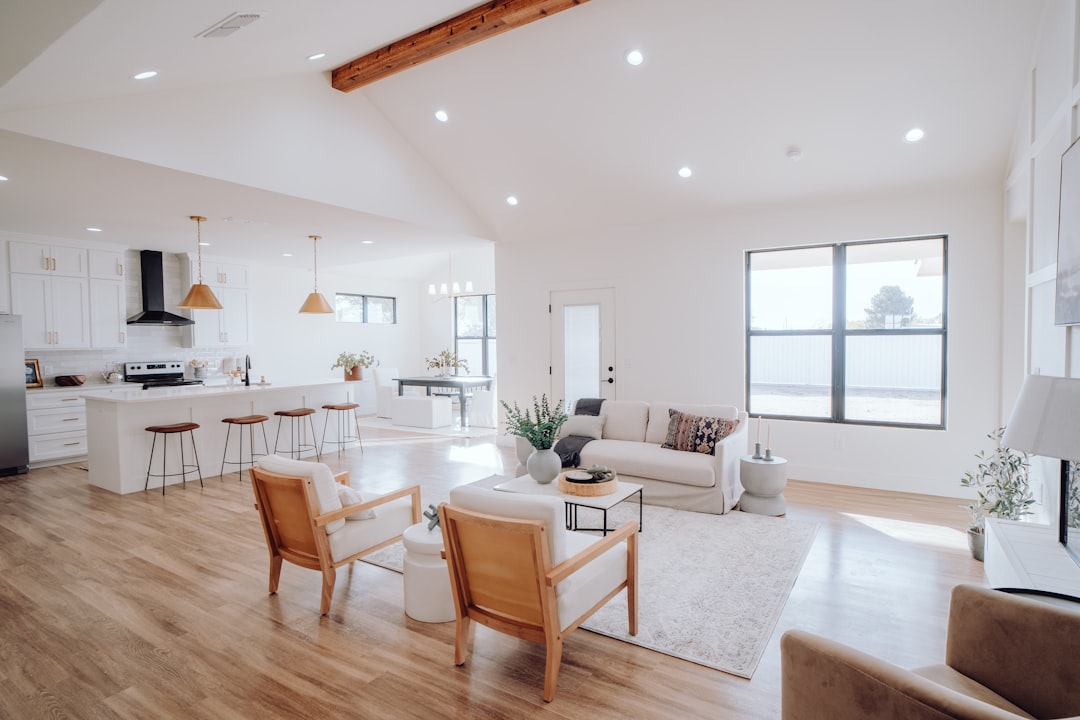
Open House Best Practices now include strong digital marketing. Most buyers learn about open houses online. Your photos must match reality. Accurate listings build trust.
Promote the open house early. Share it on social media. Add it to real estate websites. Email your buyer list. Clear dates and times matter.
Short videos work well too. A simple walkthrough video builds excitement. It also attracts serious buyers.
Use clear signs on open house day. Directional signs reduce frustration. Easy parking instructions help visitors relax before entering.
Technology supports modern open houses when used wisely. It should never feel distracting. Digital sign in systems save time. They also feel cleaner and more secure. Buyers appreciate a quick process.
QR codes offer instant access to listing details. Buyers can review floor plans and disclosures on their phone. This keeps conversations natural.
Consider soft background music. Smart speakers allow easy control. Music should stay low and neutral.
Virtual tours help buyers who arrive later. They also support follow up conversations.
Comfort is central to Open House Best Practices. Buyers need time and space. Avoid crowding rooms. Guide traffic gently.
Greet visitors warmly. A smile goes far. Offer a brief welcome. Then give them space to explore. Be available for questions. Do not follow closely. Buyers talk more freely when they feel relaxed.
Provide simple printed information. Highlight features. Include utility costs if available. Buyers appreciate transparency.
Simple refreshments add warmth. They should never feel messy or distracting. Offer bottled water. Light snacks work well. Avoid strong smells or crumbs.
Local touches create connection. A small sign mentioning a local bakery can spark conversation. This works well for South Hudson houses for sale.
Clean up often during the event. A tidy space maintains a professional feel.
Staging remains important in 2026. The style feels lighter now. Neutral colors still win. Soft textures add comfort. Buyers respond well to cozy yet clean spaces.
Use fewer decorations. Focus on scale. Furniture should show room size clearly. Add life with plants. Greenery feels fresh and calming. Avoid artificial looks.
Bathrooms and kitchens deserve extra care. These rooms drive decisions.
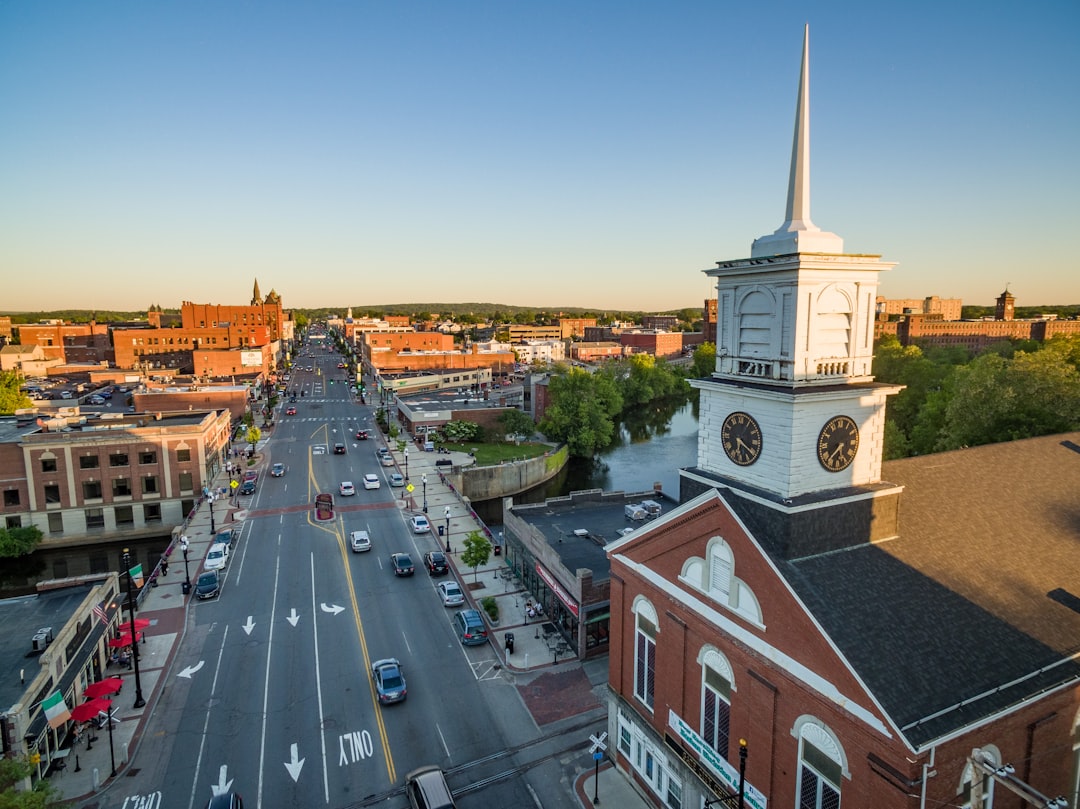
Safety matters for everyone involved. Clear plans reduce risk. Secure valuables before the event. Lock private areas if needed.
Keep personal items out of sight. Buyers should focus on the home. Have a second person present for busy events. This helps manage traffic.
Follow local guidelines when needed. Buyers value thoughtful precautions.
Strong conversations build trust. Listen more than you speak. Ask open questions. Learn what buyers value most.
Answer honestly. If you do not know, say so. Follow up later. Avoid pressure. Buyers move at their own pace. Support that process.
Mention neighborhood benefits naturally. Schools, trails, and commutes matter.
Local insight sets professionals apart. Buyers rely on it. Share trends in Southern NH houses for sale. Explain pricing clearly.
Mention recent activity in South Hudson houses for sale when relevant. Talk about community features. Restaurants, parks, and events help buyers connect.
Local stories make the home feel grounded and real.
The open house does not end when the door closes. Follow up matters. Send a short thank you message. Keep it friendly and helpful.
Share answers to questions asked. Provide missing details promptly. Ask for feedback. Buyer insight improves future showings.
Stay present but respectful. Trust builds over time.

Success looks different now. It is not only about attendance. Quality conversations matter most. Serious buyers ask deeper questions.
Track online engagement after the event. Listing views often rise. Monitor showing requests. Strong open houses drive private tours.
Evaluate feedback honestly. Small changes can improve results fast.
Open houses remain powerful in 2026. They just require care and intention. Open House Best Practices focus on experience, trust, and connection. Buyers remember how a home made them feel.
When done well, open houses support strong offers. They shorten market time. They protect value.
In competitive areas like Southern NH houses for sale, details matter. A modern open house creates confidence. Confidence leads to action.
If you need more info on Open House best practices, or are ready to sell your house give us a call at (603) 883-8840. You can also sign up for your dream home search or reach out to Our Agents for more information. We’d love to help you with your real estate needs.

Buying a home is exciting. It can also feel stressful. The home inspection checklist helps buyers feel calm, prepared, and confident. It gives you clarity before you move forward.
A home inspection is not just a formality. It is a powerful step in protecting your investment. It gives you real insight into the home condition. It also helps you plan ahead.
If you are buying in New Hampshire, this guide is for you. Whether you are viewing South Hudson houses for sale or Southern NH houses for sale, knowing what to look for matters.
Let us walk through the inspection process together. Think of this as a friendly conversation, not a scary report.
A home inspection gives you knowledge. Knowledge builds confidence. Confidence helps you make smart decisions.
The inspector checks major systems and visible areas. They look for safety issues. They look for signs of damage. They also look for wear and tear.
Even a beautiful home can hide problems. Some issues cost very little to fix. Others can cost thousands. This is why inspections matter.
For buyers, inspections provide leverage. You can ask for repairs. You can ask for credits. You can also walk away if needed.
In New Hampshire real estate, inspections are common. Most buyers include them in the offer. Skipping one can be risky.
A home inspection is a visual review. It is not invasive. Inspectors do not open walls. They do not dig into the ground.
They inspect what they can see and access. This includes systems, structures, and surfaces.
A home inspection is not a guarantee. It does not predict future problems. It also does not provide a home value.
It is a snapshot of the home condition today. That snapshot is extremely valuable.
The inspection usually happens after your offer is accepted. It takes place during the inspection contingency period.
In New Hampshire, this window is often short. Buyers should schedule inspections quickly.
The inspection usually lasts two to four hours. Buyers are encouraged to attend. Being present helps you learn the home.
This is also a great time to ask questions. No question is too small.
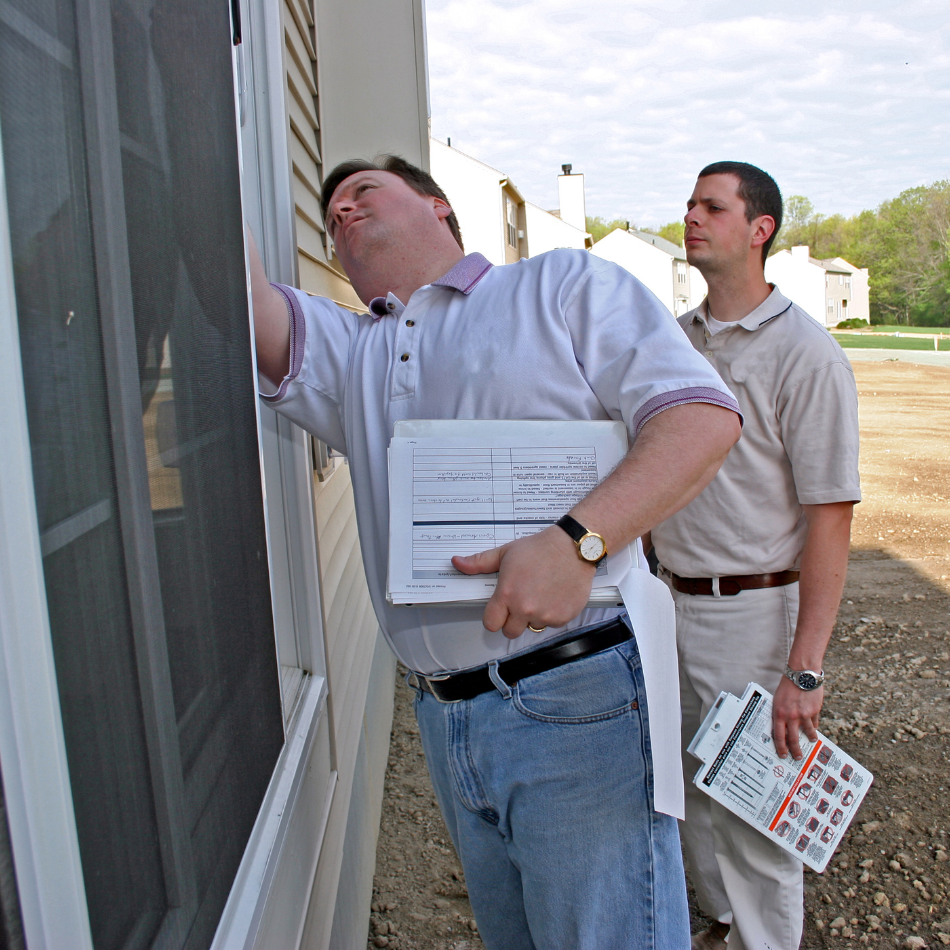
This home inspection checklist walks through each major area. It helps buyers know what matters most.
The exterior protects the home. It also protects everything inside.
The roof should be inspected carefully. Look for missing shingles. Look for curling or cracking. Check flashing around chimneys and vents.
Ask about the roof age. Roofs have a lifespan. Knowing the age helps with future planning.
Siding should be secure and intact. Look for cracks, rot, or warping. Wood trim should be solid, not soft.
Paint should not be peeling excessively. Peeling can allow moisture inside.
The foundation should appear solid. Small cracks can be normal. Large cracks may signal concern.
Water stains or damp areas matter. Ask about drainage and grading.
Windows should open and close easily. Doors should latch properly. Gaps may signal settling or moisture issues.
Check for broken seals or foggy glass.
Decks should feel sturdy. Railings should be secure. Wood should not show rot.
Steps should be even and safe.
The inside of the home tells a story. Pay attention to details.
Look for cracks or stains. Stains may signal past leaks. Cracks can be cosmetic or structural.
Floors should feel level. Sloping floors may need further review.
Interior doors should open smoothly. Windows should lock properly.
Check for drafts. Drafts impact comfort and energy costs.
Stairs should feel solid. Railings should be secure. Safety matters here.

The kitchen is one of the most used spaces.
Inspectors usually check built in appliances. They test basic functions. This includes ovens, dishwashers, and ranges.
Ask about appliance age when possible.
Cabinets should be secure. Look under sinks for leaks. Check counters for cracks or damage.
Run the water. Check pressure. Look for leaks below sinks.
Drainage should be smooth.
Bathrooms handle moisture daily. Moisture control matters.
Toilets should flush properly. Faucets should not drip. Showers should drain well.
Leaks under vanities matter.
Bathrooms need ventilation. Fans help reduce moisture. Poor ventilation can cause mold.
Check grout and caulk. Loose or missing areas may allow water damage.
Electrical systems impact safety and function.
Inspectors check the panel type. They note wiring concerns. Older homes may have outdated systems.
Ask if the system meets current standards.
Outlets should be grounded where required. Switches should function properly.
GFCI outlets are required in certain areas.
Water is essential. Plumbing issues can be costly.
Inspectors look for visible leaks. They note pipe materials. Some older materials may need updates.
Check the age of the water heater. Most last eight to twelve years.
Ask about capacity and condition.
Comfort matters in New Hampshire seasons.
Inspectors test basic operation. They note age and fuel type.
Ask about service history.
If present, air conditioning should function. Inspectors test temperature output.
Maintenance history matters here.
The attic impacts energy efficiency.
Proper insulation helps control energy costs. Inspectors note depth and type.
Ventilation helps prevent moisture buildup. Poor airflow can cause issues.
Below ground areas tell important stories.
Look for dampness or musty smells. Water intrusion should be addressed.
Inspectors look for beam and support concerns. Sagging or damage matters.

Some inspections include added tests.
Radon testing is common in New Hampshire. Elevated levels can be mitigated.
These should be present and working. Safety matters for every buyer.
Inspection reports can feel overwhelming. Take your time.
Focus on major items first. Safety issues matter most. Structural concerns matter next.
Cosmetic issues are common. Do not panic over small items.
Your REALTOR can help review the report. They can explain what matters.
Inspections create options.
Buyers can request repairs. Buyers can request credits. Buyers can adjust terms.
Not every item needs negotiation. Focus on big picture concerns.
In competitive markets, strategy matters. Your agent helps guide this step.
Older homes are common in Southern NH. Older homes can still be great homes.
Expect some wear. Focus on function and safety.
Weather impacts homes here. Snow, rain, and cold take a toll.
This makes inspections even more important.
South Hudson houses for sale offer great neighborhoods. Southern NH houses for sale attract many buyers.
Homes move fast. Preparation helps.
Knowing your home inspection checklist gives you confidence. Confidence helps you compete.
Your REALTOR does more than schedule the inspection.
They attend with you. They help explain findings. They help negotiate next steps.
They also connect you with trusted inspectors.
This guidance is valuable, especially for first time buyers.
Buying a home is a big step. It should feel exciting, not scary.
A strong home inspection checklist gives you clarity. It helps you plan. It helps you protect your investment. No home is perfect. The goal is understanding.
When you know what you are buying, you move forward with confidence. If you are exploring South Hudson houses for sale or Southern NH houses for sale, inspections matter.
Take your time. Ask questions. Lean on your REALTOR. You deserve to feel confident when you buy a home.
If you need more information on a home inspection checklist, or are ready to sell your house give us a call at (603) 883-8840. You can also sign up for your dream home search or reach out to Our Agents for more information. We’d love to help you with your real estate needs.

Selling a home can feel frustrating. You list it. You wait. You hope. Then nothing happens. When a home not selling sits on the market, many sellers feel confused and stressed.
The truth may surprise you. Market conditions matter, but seller choices matter too. Often, small issues create big problems. The good news is this. Most problems are fixable.
Let us talk honestly and clearly. Think of this as a helpful conversation, not criticism. The goal is to get your home sold.
Whether you are listing South Hudson houses for sale or Southern NH houses for sale, these tips apply.
Buyers form opinions fast. Often, they decide within seconds. That first look sets the tone.
If your home feels cluttered or tired, buyers notice. If it feels clean and bright, buyers relax.
Online photos create that first impression. Then showings confirm it. If your home not selling, start here.
Price is the number one reason homes sit.
Many sellers price based on emotion. Others price based on online estimates. Some price based on a neighbor sale. Buyers price based on value.
If your price feels high, buyers skip your listing. Even worse, they never schedule a showing. In New Hampshire, buyers are educated. They compare homes carefully.
A strong price attracts attention. A high price pushes buyers away.
Overpricing feels safe. It feels like room to negotiate. In reality, it often backfires.
The first weeks matter most. That is when excitement peaks. If buyers pass early, momentum fades. Then price reductions follow.
Price reductions raise questions. Buyers wonder what is wrong. If your home not selling, pricing deserves a fresh look.

Buyers want to picture themselves living there. That is hard with clutter everywhere. Personal items distract buyers. Too much furniture makes rooms feel smaller.
Mess sends a message. It suggests poor care. Clean homes feel cared for. Simple spaces feel larger.
This matters greatly for South Hudson houses for sale and Southern NH houses for sale, where buyers compare many options.
Clutter hides space. It blocks light. It adds stress. Counters should be mostly clear. Closets should feel roomy. Floors should be open.
Storage bins help. Temporary storage helps even more. Decluttering is not about judgment. It is about presentation.
Most buyers start online. Photos decide if they click.
Dark photos turn buyers away. Blurry photos create doubt. Cell phone photos rarely work. Professional photos change everything. Good photos highlight space and flow. They tell a story.
If buyers do not click, they never visit. A home not selling often suffers from weak marketing photos.
Marketing is more than a listing upload. Buyers expect strong descriptions. They expect floor plans. They expect exposure.
A good marketing plan reaches buyers everywhere. That includes websites, social media, and email. Local exposure matters too.
If your home not selling, ask how it is being promoted.

Small issues create big doubts.
Loose handles raise concern. Peeling paint looks neglected. Dripping faucets feel annoying.
Buyers notice details. They add issues together in their minds.
Fixing small items builds confidence. It shows pride of ownership.
Pre inspection repairs often pay off.
Buyers worry about future costs.
If they see ignored repairs, they expect more problems.
This can impact offers. It can also stop offers completely.
Address what you can before listing.
Flexibility helps homes sell faster.
If showings are limited, buyers move on. If access feels difficult, they skip it.
Buyers want convenience. They also want comfort.
Pets, strict times, or constant cancellations slow momentum.
If your home not selling, access may be part of the issue.
Feedback can sting. That is natural.
However, feedback is valuable. It reveals buyer thinking.
Ignoring feedback keeps problems in place.
Listening allows adjustments.
Smart sellers adapt quickly.
Markets change. What worked last year may not work now.
Interest rates affect buyers. Inventory affects competition.
Seasonal shifts matter in New Hampshire.
South Hudson houses for sale may behave differently than other areas.
Southern NH houses for sale often move fast, but strategy still matters.
Your plan should match today’s market.
Not all strategies fit every home.
Some homes need staging. Others need pricing changes. Some need better marketing.
A strong agent watches the data. They adjust quickly.
Communication matters too.
If your home not selling, strategy deserves review.

Selling is personal. Memories live in every room.
Buyers do not share those memories.
They focus on space, price, and condition.
Separating emotion from the process helps.
Think like a buyer, not an owner.
Buyers seek comfort. They want fewer surprises.
They want fair value. They want clarity.
Your job as a seller is to remove doubt.
Clean homes reduce doubt. Fair prices reduce doubt. Transparency reduces doubt.
Confidence leads to offers.
The good news is simple. You can fix most issues.
Start with price. Then address presentation. Improve marketing next.
Small changes can create big results.
Momentum can return quickly.
Re evaluate your price honestly. Declutter key spaces. Improve lighting.
Fix obvious issues. Review your photos. Increase showing flexibility.
Listen to feedback. Adjust fast.
These steps help a home not selling regain interest.

Local buyers think differently.
South Hudson houses for sale attract commuters and families.
Southern NH houses for sale attract a wide buyer pool.
Pricing, staging, and timing should reflect local trends.
A local REALTOR understands these details.
Even strong markets have unsold homes.
Those homes usually share patterns.
Overpricing leads the list. Poor presentation follows closely.
Marketing gaps matter too.
Understanding the reason changes the outcome.
Honest advice helps homes sell.
It may feel uncomfortable at first. However, it saves time and stress.
A good REALTOR tells the truth kindly.
That honesty protects your bottom line.
Selling does not have to feel frustrating.
With the right plan, it feels controlled.
Knowledge removes fear. Action creates results.
If your home not selling, you are not alone.
Solutions exist.
Every home can sell with the right approach. If something is not working, adjust it. Small changes often bring big results.
Whether you are listing South Hudson houses for sale or Southern NH houses for sale, success starts with awareness.
Your home deserves strong interest. Buyers deserve clarity. With the right strategy, those two meet.
If you need more tips on why your home is not selling, or are ready to sell your house give us a call at (603) 883-8840. You can also sign up for your dream home search or reach out to Our Agents for more information. We’d love to help you with your real estate needs.

Buying a home is exciting. It can also feel stressful. The home inspection checklist helps buyers feel calm, prepared, and confident. It gives you clarity before you move forward.
A home inspection is not just a formality. It is a powerful step in protecting your investment. It gives you real insight into the home condition. It also helps you plan ahead.
If you are buying in New Hampshire, this guide is for you. Whether you are viewing South Hudson houses for sale or Southern NH houses for sale, knowing what to look for matters.
Let us walk through the inspection process together. Think of this as a friendly conversation, not a scary report.
A home inspection gives you knowledge. Knowledge builds confidence. Confidence helps you make smart decisions.
The inspector checks major systems and visible areas. They look for safety issues. They look for signs of damage. They also look for wear and tear.
Even a beautiful home can hide problems. Some issues cost very little to fix. Others can cost thousands. This is why inspections matter.
For buyers, inspections provide leverage. You can ask for repairs. You can ask for credits. You can also walk away if needed.
In New Hampshire real estate, inspections are common. Most buyers include them in the offer. Skipping one can be risky.

A home inspection is a visual review. It is not invasive. Inspectors do not open walls. They do not dig into the ground.
They inspect what they can see and access. This includes systems, structures, and surfaces.
A home inspection is not a guarantee. It does not predict future problems. It also does not provide a home value.
It is a snapshot of the home condition today. That snapshot is extremely valuable.
The inspection usually happens after your offer is accepted. It takes place during the inspection contingency period.
In New Hampshire, this window is often short. Buyers should schedule inspections quickly.
The inspection usually lasts two to four hours. Buyers are encouraged to attend. Being present helps you learn the home.
This is also a great time to ask questions. No question is too small.
This home inspection checklist walks through each major area. It helps buyers know what matters most.
The exterior protects the home. It also protects everything inside.
The roof should be inspected carefully. Look for missing shingles. Look for curling or cracking. Check flashing around chimneys and vents.
Ask about the roof age. Roofs have a lifespan. Knowing the age helps with future planning.
Siding should be secure and intact. Look for cracks, rot, or warping. Wood trim should be solid, not soft.
Paint should not be peeling excessively. Peeling can allow moisture inside.
The foundation should appear solid. Small cracks can be normal. Large cracks may signal concern.
Water stains or damp areas matter. Ask about drainage and grading.
Windows should open and close easily. Doors should latch properly. Gaps may signal settling or moisture issues.
Check for broken seals or foggy glass.
Decks should feel sturdy. Railings should be secure. Wood should not show rot.
Steps should be even and safe.

The inside of the home tells a story. Pay attention to details.
Look for cracks or stains. Stains may signal past leaks. Cracks can be cosmetic or structural.
Floors should feel level. Sloping floors may need further review.
Interior doors should open smoothly. Windows should lock properly.
Check for drafts. Drafts impact comfort and energy costs.
Stairs should feel solid. Railings should be secure. Safety matters here.
The kitchen is one of the most used spaces.
Inspectors usually check built in appliances. They test basic functions. This includes ovens, dishwashers, and ranges.
Ask about appliance age when possible.
Cabinets should be secure. Look under sinks for leaks. Check counters for cracks or damage.
Run the water. Check pressure. Look for leaks below sinks.
Drainage should be smooth.
Bathrooms handle moisture daily. Moisture control matters.
Toilets should flush properly. Faucets should not drip. Showers should drain well.
Leaks under vanities matter.
Bathrooms need ventilation. Fans help reduce moisture. Poor ventilation can cause mold.
Check grout and caulk. Loose or missing areas may allow water damage.
Electrical systems impact safety and function.
Inspectors check the panel type. They note wiring concerns. Older homes may have outdated systems.
Ask if the system meets current standards.

Outlets should be grounded where required. Switches should function properly.
GFCI outlets are required in certain areas.
Water is essential. Plumbing issues can be costly.
Inspectors look for visible leaks. They note pipe materials. Some older materials may need updates.
Check the age of the water heater. Most last eight to twelve years.
Ask about capacity and condition.
Comfort matters in New Hampshire seasons.
Inspectors test basic operation. They note age and fuel type.
Ask about service history.
If present, air conditioning should function. Inspectors test temperature output.
Maintenance history matters here.
The attic impacts energy efficiency.
Proper insulation helps control energy costs. Inspectors note depth and type.
Ventilation helps prevent moisture buildup. Poor airflow can cause issues.
Below ground areas tell important stories.
Look for dampness or musty smells. Water intrusion should be addressed.
Inspectors look for beam and support concerns. Sagging or damage matters.
Some inspections include added tests.
Radon testing is common in New Hampshire. Elevated levels can be mitigated.
These should be present and working. Safety matters for every buyer.
Inspection reports can feel overwhelming. Take your time.
Focus on major items first. Safety issues matter most. Structural concerns matter next.
Cosmetic issues are common. Do not panic over small items.
Your REALTOR can help review the report. They can explain what matters.
Inspections create options.
Buyers can request repairs. Buyers can request credits. Buyers can adjust terms.
Not every item needs negotiation. Focus on big picture concerns.
In competitive markets, strategy matters. Your agent helps guide this step.

Older homes are common in Southern NH. Older homes can still be great homes.
Expect some wear. Focus on function and safety.
Weather impacts homes here. Snow, rain, and cold take a toll.
This makes inspections even more important.
South Hudson houses for sale offer great neighborhoods. Southern NH houses for sale attract many buyers.
Homes move fast. Preparation helps.
Knowing your home inspection checklist gives you confidence. Confidence helps you compete.
Your REALTOR does more than schedule the inspection.
They attend with you. They help explain findings. They help negotiate next steps.
They also connect you with trusted inspectors.
This guidance is valuable, especially for first time buyers.
Buying a home is a big step. It should feel exciting, not scary.
A strong home inspection checklist gives you clarity. It helps you plan. It helps you protect your investment. No home is perfect. The goal is understanding.
When you know what you are buying, you move forward with confidence. If you are exploring South Hudson houses for sale or Southern NH houses for sale, inspections matter.
Take your time. Ask questions. Lean on your REALTOR. You deserve to feel confident when you buy a home.
If you need more information on a home inspection checklist, or are ready to sell your house give us a call at (603) 883-8840. You can also sign up for your dream home search or reach out to Our Agents for more information. We’d love to help you with your real estate needs.

Millennials are now a major force in the housing market. To grow your business, you need to know how to attract millennial homebuyers effectively. Whether you’re selling South Hudson houses for sale or other Southern NH homes, younger buyers have different priorities than previous generations.
They care about lifestyle, technology, and convenience. They want homes that fit modern living while staying within budget. By understanding their desires, REALTORS can tailor marketing efforts, highlight the right features, and create a buying experience that feels personal and exciting.
Millennials have unique home-buying preferences. To attract millennial homebuyers, consider these priorities:
Open floor plans: They love spaces that feel bright, flexible, and easy to entertain.
Updated kitchens and bathrooms: Modern appliances and finishes matter.
Energy efficiency: Eco-friendly features like solar panels, smart thermostats, and LED lighting appeal strongly.
Outdoor space: Patios, decks, and small yards for pets and gatherings are highly desirable.
Low-maintenance properties: Millennials often prefer homes that don’t require major renovations.
Highlighting these features in your listings and marketing materials makes properties more appealing.
Millennials are online buyers. To attract millennial homebuyers, digital marketing is essential.
High-quality photos: Mobile-friendly and visually stunning images are key.
Video tours: Short, engaging videos capture attention and showcase flow and space.
Social media ads: Platforms like Instagram, TikTok, and Facebook reach younger buyers effectively.
Email campaigns: Personalized emails with new listings or market updates keep them engaged.
Website optimization: Easy-to-use search features and clear property info boost user experience.
Digital marketing lets you showcase Southern NH houses for sale to buyers exactly where they spend time online.

Millennials want more than a house. They want a lifestyle. To attract millennial homebuyers, emphasize:
Walkability to shops, restaurants, and parks
Access to trails, gyms, and community centers
Local events, farmers’ markets, and social spaces
Proximity to work and public transit
Communities like South Hudson offer a blend of suburban comfort and access to amenities that millennials value.
Tech-savvy millennials expect agents to be efficient and modern. Integrate technology to attract millennial homebuyers:
Virtual tours and 3D walkthroughs: Let buyers explore homes online.
E-signing and digital documents: Streamline the buying process.
Mobile alerts for new listings: Notify them instantly when a home hits the market.
Smart home features: Highlight Wi-Fi thermostats, smart locks, and security cameras.
Using technology demonstrates you understand their lifestyle and simplifies the buying journey.
Millennials respond to marketing that feels personal, transparent, and authentic. To attract millennial homebuyers, write copy that:
Uses simple, conversational language
Highlights practical benefits like energy savings or low maintenance
Showcases lifestyle perks over just square footage
Includes storytelling to connect emotionally
For example: “Enjoy morning coffee on a sunny deck while your kids play in the backyard.” This paints a picture they can relate to.
Many millennials are first-time buyers and may need help understanding financing. To attract millennial homebuyers, provide:
Clear explanations of down payment options
Guidance on first-time buyer programs in New Hampshire
Mortgage pre-approval tips and resources
Budget planning advice
Support through financing makes buyers feel confident and increases the likelihood of closing a sale.
Millennials care about the environment. Highlighting sustainable features helps attract millennial homebuyers:
Solar panels and renewable energy options
Energy-efficient appliances and windows
Smart irrigation and drought-resistant landscaping
Recycling and composting-friendly setups
Eco-friendly homes often feel modern, thoughtful, and aligned with millennial values.

Remote work is popular among millennials. Homes that offer functional office or flex spaces are more attractive.
Create a dedicated office nook or room
Ensure strong Wi-Fi and connectivity
Showcase multi-purpose rooms for fitness, study, or hobbies
Homes in Southern NH and South Hudson can feature flexible spaces that meet these needs.
Millennials prefer video over static images. To attract millennial homebuyers, create:
Short, engaging property walkthroughs
Neighborhood highlight videos
Live virtual open houses on social media
Video helps buyers feel connected to a property before visiting in person.
Younger buyers often seek value and long-term growth. Emphasize:
Competitive pricing for Southern NH houses for sale
Potential for home appreciation over time
Low property taxes and no NH state income tax
Comparison to nearby Massachusetts towns for cost savings
Showing the financial benefits alongside lifestyle perks strengthens your appeal.
Millennials search online first. To attract millennial homebuyers, make sure listings are optimized:
Accurate, up-to-date information
Clear photos and floor plans
Highlight unique features like outdoor space, smart home tech, or storage
Include nearby amenities like schools, parks, and transit
Listings should answer questions before buyers even call.

Millennials trust reviews and testimonials. Showcase social proof to attract millennial homebuyers:
Share client success stories and positive experiences
Include photos or short videos of happy buyers
Highlight your expertise in Southern NH real estate
Feature online ratings and recommendations
Social proof builds trust and encourages action.
Millennials often value community as much as the home itself. Highlight:
Vibrant social scenes and local hangouts
Farmers’ markets, parks, and community events
Access to recreation, hiking, and fitness centers
Promote the area alongside the property to make a lifestyle connection.
Open houses attract millennials when done right. Use interactive and tech-friendly methods:
Virtual tours for remote viewers
QR codes with digital brochures
Live social media streaming
Coffee, light snacks, and casual networking
A welcoming, modern approach resonates with younger buyers.
Transparency is critical. To attract millennial homebuyers, be clear about:
Home condition and history
Pricing strategy and comparable sales
Expected costs, taxes, and fees
Steps in the buying process
Honest communication builds trust and reduces buyer anxiety.
Millennials use phones for nearly everything. Ensure your marketing is mobile-friendly:
Responsive website design
Easy-to-use listing search
Click-to-call buttons and instant messaging
Mobile-friendly forms for inquiries and applications
Convenience and speed are highly valued.
Millennials often seek homes that require minimal work. Focus on:
Updated kitchens and baths
Fresh paint, new flooring, or modern fixtures
Functional appliances and storage solutions
Move-in-ready homes appeal to buyers who prioritize convenience.
Millennials want personal experiences. To attract millennial homebuyers, customize your approach:
Send personalized listing alerts
Recommend neighborhoods based on lifestyle preferences
Offer private tours and flexible scheduling
Tailoring the experience makes buyers feel valued and understood.
Millennials appreciate outdoor living spaces:
Decks, patios, and fenced yards
Gardens and green spaces for pets
Easy access to walking trails and parks
Highlighting outdoor amenities helps properties stand out.

Beyond sustainability, energy-efficient homes save money. Emphasize:
Lower utility bills with modern appliances
Insulation and windows that reduce costs
Smart thermostats and energy monitoring
Cost savings resonate with budget-conscious millennials.
Millennials value agents who understand the area. Share knowledge about:
Schools and daycare options
Restaurants, coffee shops, and nightlife
Commuting routes and transit options
Local events and recreational activities
Demonstrating local expertise builds credibility and trust.
Millennials often share experiences online. Encourage:
Sharing photos of homes on social media
Writing reviews of your service
Tagging listings or events
This increases visibility and strengthens your reputation with younger buyers.
To attract millennial homebuyers, focus on lifestyle, technology, and transparency. Showcase homes that match their priorities while using modern marketing tools.
Highlight South Hudson houses for sale and other Southern NH options with open floor plans, updated kitchens, flexible spaces, and outdoor living. Use social media, video tours, and personalized communication to engage buyers.
Millennials are ready to buy, but they want agents who understand their values, simplify the process, and create an enjoyable experience. By adopting these strategies, REALTORS can tap into a growing market and make lasting connections.

If you need more tips on how to attract more millenials to your property, or are ready to sell your house give us a call at (603) 883-8840. You can also sign up for your dream home search or reach out to Our Agents for more information. We’d love to help you with your real estate needs.

Moving day is exciting but let’s be honest—it can also be a little stressful. Between boxes, packing tape, and that last-minute rush to get everything out, it’s easy for things to go wrong. One of the biggest worries for homeowners is damage. Whether you are buying or selling, the last thing you want is to unpack and find broken or scratched items. Knowing the items that get damaged on moving day can help you plan ahead, pack smarter, and move with more confidence.
If you’re getting ready to list your home or browse South Hudson houses for sale or Southern NH houses for sale, this guide can help you protect your belongings before, during, and after the big move.
Let’s take a closer look at the top 10 items that often suffer damage on moving day—and what you can do to prevent it.
Fragile items like glasses, plates, and mugs are always at risk. Even a small bump in the moving truck can cause chips or cracks. To protect them, wrap each piece in bubble wrap or packing paper. Use sturdy boxes with plenty of cushioning between layers. Label the boxes clearly so movers know to handle them with care.
If you have a favorite set of dishes or sentimental glassware, consider transporting those items in your car. A little extra caution can save you from heartbreak later.
Large furniture pieces often take the brunt of the damage during a move. Corners get dinged, legs get scratched, and fabric can tear if not wrapped properly. Take the time to remove cushions, detach legs when possible, and cover surfaces with moving blankets.
For wooden furniture, add a protective layer of cardboard between items. When moving through tight doorways or hallways, take it slow. Having an extra set of hands helps prevent bumps and scrapes.

Televisions, computers, and gaming consoles are among the most expensive items that get damaged on moving day. Always use the original boxes if you still have them. If not, wrap electronics in soft blankets or foam padding and pack them snugly.
Be sure to label cords and remotes before disconnecting everything. It will make setup in your new home much easier. Keep your electronics away from moisture or extreme temperatures during the move.
Framed art and mirrors are beautiful but delicate. A single drop can result in shattered glass or torn canvas. To protect them, place masking tape in an X shape across the glass surface. This keeps the glass from scattering if it breaks.
Use mirror boxes or specialty picture boxes to keep everything tight and secure. Always store these items upright, not flat, and cushion them with plenty of padding on all sides.
Lampshades and light fixtures often get crushed or cracked. They’re oddly shaped and require gentle handling. Remove bulbs and wrap shades separately. Use soft materials like towels or bubble wrap to protect them from dents and dust.
When packing the base of a lamp, cushion it in a sturdy box with padding around the neck and cord. Keep small parts, like screws or hardware, in labeled bags so you can easily reassemble them later.
Your houseplants are living things, and moving can be stressful for them too. Sudden temperature changes, lack of sunlight, or rough handling can cause damage. Water your plants a day before the move, and keep them in breathable boxes with air holes.
Try to transport them in your own vehicle if possible. Once you arrive, place them in a similar environment to where they were before. This will help them recover from the move and continue to thrive.

From washing machines to refrigerators, appliances can be tricky to move. Scratches, dents, and broken handles are common issues. Always secure cords, remove shelves, and tape doors shut before moving.
If your appliance has water lines, like a fridge or dishwasher, disconnect and drain them ahead of time. Have professionals handle larger items to ensure safe lifting and transport. Taking these steps can prevent costly repairs later.
Mattresses are heavy, bulky, and easy to tear during a move. They can also pick up dirt if not properly covered. Use a mattress bag or plastic wrap to keep it clean and dry.
Avoid folding your mattress unless it’s designed to do so. When loading it into a moving truck, lay it flat or stand it on its side with support. Protecting your mattress means you’ll enjoy a good night’s sleep in your new home right away.
Books may seem sturdy, but moisture and rough handling can cause pages to wrinkle or covers to bend. Pack them in smaller boxes so they’re easier to lift. Keep heavy books on the bottom and lighter ones on top.
Important papers, like home documents or contracts, should travel with you. Place them in a labeled folder or fireproof box. If you’re closing on one of the Southern NH houses for sale, you’ll want all your paperwork safe and organized.

It’s the little things that often mean the most. Figurines, picture frames, and souvenirs hold personal memories. Unfortunately, these are also items that get damaged on moving day. Wrap each piece carefully and avoid overpacking boxes.
Use dividers for fragile décor items and fill any empty spaces with soft materials to prevent shifting. For irreplaceable keepsakes, it’s best to handle them personally instead of letting movers pack them.
Now that you know the items that get damaged on moving day, let’s talk about how to keep everything safe. Preparation and awareness make all the difference.
Begin packing well before your move. Rushed packing leads to broken items. With extra time, you can sort, label, and protect your belongings better.
Invest in sturdy boxes, heavy-duty tape, bubble wrap, and moving blankets. Avoid using old boxes that might collapse under weight.
If you’re buying South Hudson houses for sale, you’ll want your new home to start off neat and organized. Quality packing materials can help make that happen.
Clear labels make unpacking easier and keep movers aware of fragile items. Write “Fragile” and “This Side Up” on boxes with breakables.
Include room names on each box so movers know where to place them in your new home. This simple step saves time and reduces stress.
Sometimes, hiring a professional moving company is worth every penny. Experienced movers know how to handle delicate items safely.
Before hiring, check reviews and ask for proof of insurance. The peace of mind that comes with knowing your belongings are protected is priceless.
Make a list of everything you’re moving. Note the condition of each item before packing. If something does get damaged, you’ll have records for insurance claims.
Jewelry, important documents, and sentimental keepsakes are better kept with you. Even with the best movers, accidents happen.
Transporting these items yourself gives you peace of mind during a busy move.

In New Hampshire, weather can change fast. Rain or snow can cause slippery conditions and wet boxes. Have plastic wrap and tarps ready in case the weather turns.
Protecting your belongings from moisture can save you from unpleasant surprises later.
Once you arrive at your new home, take your time unpacking. Check fragile boxes first and inspect for damage. If anything is broken, document it right away.
Clean your furniture and arrange rooms gradually. You’ll appreciate the chance to make your new space feel like home.
Moving can be a big adventure, and a little planning can go a long way. Knowing which items that get damaged on moving day helps you pack smarter and stay calm during the chaos.
Whether you’re upgrading, downsizing, or exploring Southern NH houses for sale, keeping your belongings safe during a move is part of protecting your investment. By taking the right precautions, you can enjoy a smoother transition into your next home.
Moving day doesn’t have to be stressful. With preparation, care, and attention to detail, you can protect what matters most and start your new chapter with confidence.

If you need more information on items that get damaged on moving day, or are ready to sell your house give us a call at (603) 883-8840. You can also sign up for your dream home search or reach out to Our Agents for more information. We’d love to help you with your real estate needs.

If you’ve ever looked around your home before a move and thought, “Where did all this stuff come from?” you’re not alone. Sorting through years of belongings can feel overwhelming. The good news is, with the right plan, you can turn that mountain of clutter into a quick and rewarding project.
Whether you’re moving, downsizing, or just organizing, learning how to donate or toss items can make the process smoother. Homeowners in New Hampshire, especially those getting ready to list South Hudson houses for sale or Southern NH houses for sale, know that decluttering makes a home more attractive to buyers. A clean, open space helps buyers imagine themselves living there—and that can help your home sell faster.
Let’s explore how to decide what stays, what goes, and what might make someone else’s day when you donate it.
Before we dive into the “donate or toss” guide, it’s important to understand why decluttering matters so much when selling your home.
Buyers form opinions quickly. The moment they walk in, they start picturing their own furniture, their own family, and their own memories in that space. When clutter fills every corner, that vision becomes harder to see.
Decluttering helps you show off your home’s true potential. It makes rooms look bigger, cleaner, and more inviting. Homes across New Hampshire, especially Southern NH houses for sale, often sell faster and at better prices when sellers take the time to declutter first.
It’s not just about looks, though—it’s also about creating a stress-free move for you. The less you bring with you, the easier unpacking will be in your next home.

The key to decluttering is not to take on the whole house at once. That’s a recipe for frustration. Instead, start with one space—a single room, closet, or even a drawer.
Set a timer for 30 minutes. Focus only on that area. Once the timer goes off, take a short break. Then either keep going or stop for the day.
By breaking the process into smaller parts, you’ll stay motivated and avoid burnout.
As you sort, create three piles: Keep, Donate, and Toss. This simple system will help you stay organized and make decisions faster.
Sometimes it’s hard to know whether to donate or toss something. These questions can help you decide:
Have I used this item in the last year?
Would I buy this again if I saw it today?
Does it have sentimental value, or is it just taking up space?
Is it in good condition and safe to use?
If you haven’t used it in over a year and it doesn’t hold strong emotional meaning, it might be time to let it go.
When in doubt, remember this: your home should feel open, comfortable, and easy to live in—not like a storage unit.
Many people hold onto things because they’re not sure what donation centers actually accept. The truth is, there are plenty of places in New Hampshire that welcome gently used household items.
Here are common things you can donate:
Clothing: Clean, wearable clothes in good condition.
Furniture: Pieces that are sturdy, not broken, and free from stains.
Kitchenware: Pots, pans, dishes, and utensils that still work.
Books and Toys: Items that bring joy and are in good shape.
Home Decor: Lamps, artwork, or small decor pieces that others can enjoy.

Charities like Goodwill, Habitat for Humanity ReStore, and local shelters often accept these donations. Many even offer free pickup for large items, which makes donating easy.
Giving away items you no longer need can also feel great. You’re helping others and making your home more market-ready at the same time.
Not everything can be donated, and that’s okay. Some items are better off being tossed or recycled.
Here’s a list of what to toss or responsibly dispose of:
Broken or damaged furniture.
Stained or torn clothing.
Expired food or medicines.
Old cleaning products or chemicals.
Electronics that no longer work.
For electronics or hazardous materials, check with your town’s recycling or disposal center. Many New Hampshire towns have specific days for electronics or chemical drop-offs.
Tossing out what’s truly unusable will make your space lighter and cleaner.
Before you toss something, see if it can be recycled. Items like paper, glass, plastic, and metal often have second lives.
If you’re decluttering for a move, recycling helps the environment and reduces your moving load. Check local recycling programs for guidelines.
It’s amazing how much less waste you’ll have once you sort properly.
We all have those boxes of memories—old photos, cards, and keepsakes that tug at our hearts. These are often the hardest things to decide about.
You don’t need to toss all of them, but you might not need to keep everything either. Choose a few meaningful items that truly bring joy. For others, take photos before letting them go. This keeps the memory without keeping the clutter.
Some people create a “memory box” for sentimental treasures. Limit the box to a small size so you can manage it easily.

To make the process easier, let’s go through a few key areas of the home.
Toss expired food, broken gadgets, and old plastic containers. Donate extra dishes, mugs, or small appliances that work. Buyers love spacious, organized kitchens.
Remove extra decor, old magazines, or worn-out pillows. Keep only what makes the space feel inviting. A simple layout helps highlight the room’s best features.
Go through clothing, shoes, and accessories. Donate what you no longer wear. Clean closets look bigger, which helps when showing your home.
Toss old makeup, expired medicine, and empty bottles. Donate unused toiletries to local shelters.
This is often the biggest project. Sort tools, sports gear, and holiday items. Keep only what you use. Donate working items to community centers or schools.
By moving room by room, you’ll stay focused and see progress quickly.

Once you’ve decided what to keep, make it shine. Use bins, shelves, and labels to organize. Buyers looking at Southern NH houses for sale love seeing clean, tidy storage areas. It shows that the home has been well cared for.
A neat space also makes packing and moving easier when your home sells.
If you plan to donate furniture or large items, call ahead. Many charities book pickups days or even weeks in advance. Schedule early so you can stay on track with your move.
Be sure to ask for a donation receipt if you plan to claim items on your taxes.
Now that your home is decluttered and clean, you’re ready for showings. Buyers walking through will feel the difference. A home that’s free of clutter feels brighter, bigger, and more relaxing.
Even small touches like clear countertops and tidy closets can impress buyers. If you’re preparing South Hudson houses for sale, this step can give your property an edge over others on the market.
Remember, buyers want to picture themselves in your home. Decluttering gives them that emotional connection that helps sell homes faster.

Beyond the practical benefits, there’s something emotionally freeing about letting go.
When you decide what to donate or toss, you create space for new beginnings. You release old energy and make room for new memories in your next home.
Many people say that once they start decluttering, they feel lighter and more focused. It’s a powerful way to prepare mentally for a big move.
Decluttering isn’t just about neatness—it can actually increase your home’s value. A clean, organized home photographs better and appeals more to buyers online.
Real estate agents in Southern New Hampshire often recommend decluttering as one of the top steps before listing. When buyers view Southern NH houses for sale, they’re more drawn to homes that look move-in ready.
The effort you put into sorting through items now can pay off in the sale price later.
Once you move into your new place, try to keep the same decluttering habits. Go through closets every few months. Donate items you don’t use.
This simple routine keeps your home fresh, organized, and peaceful. Plus, you’ll never face a mountain of stuff again before your next move.
When you choose to donate, you’re not just cleaning your home—you’re helping your community. Families in need benefit from furniture, clothing, and other essentials that still have life left in them.
It’s a win-win situation. You feel good, your home looks great, and someone else gets the chance to enjoy what you no longer need.
If you’re preparing to list your home among South Hudson houses for sale, these acts of kindness can even inspire positive word-of-mouth in your neighborhood.
Learning how to donate or toss your belongings is one of the smartest ways to prepare for selling your home. It helps you create a fresh, open environment that appeals to buyers while reducing your own stress.
Whether you’re listing in South Hudson or anywhere in Southern NH, taking time to declutter and donate can give your property an edge. Buyers love homes that feel spacious and well cared for.
So grab a few boxes, turn on your favorite playlist, and start sorting. You’ll be amazed at how much better your home feels once you let go of the clutter.
If you need more tips on whether to donate or toss, or are ready to sell your house give us a call at (603) 883-8840. You can also sign up for your dream home search or reach out to Our Agents for more information. We’d love to help you with your real estate needs.